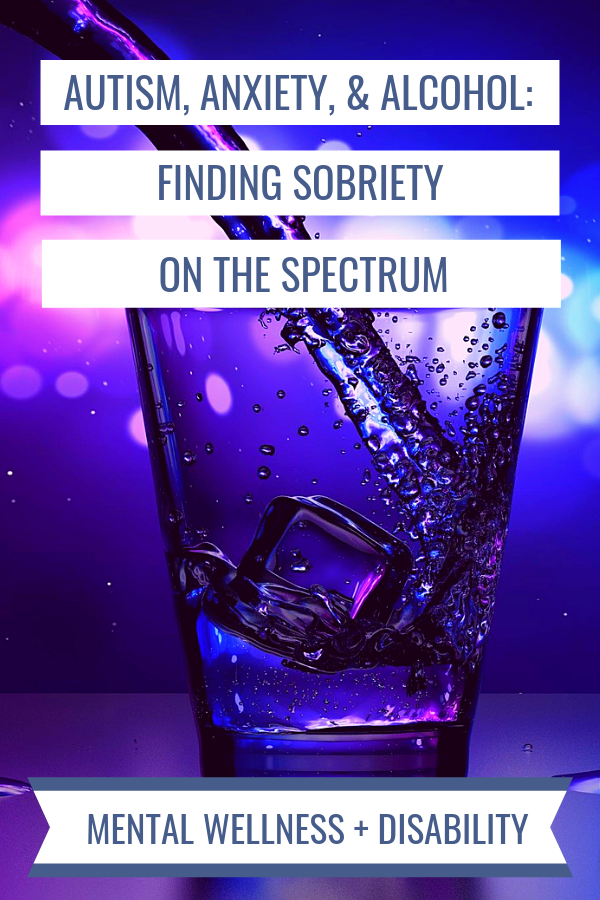A cursory glance at the research on Autism and alcohol abuse would tell you that Autistic people don’t struggle with alcohol abuse. Articles like this one report that people diagnosed with Autism use alcohol less than neurotypical people do. The article also outlines that Autistics are not very likely to abuse or develop alcohol dependence.
And for a long time, researchers accepted this, because it fit with their expectations of Autistic people. One study hypothesized:
“In general, it is expected that substance use might be rare in individuals with ASD because of a lack of social skills, resulting in reduced access to substance-using peers as well as lower-than-average novelty-seeking behavior.”
But, that same article highlights that there’s much more to the relationship between Autism and alcohol abuse than meets the eye.
The article points out that people with Autistic traits, or Autism-like symptoms are less likely than others to start drinking. But, if they do use alcohol, they are more likely than others to develop alcohol dependence.
Those Autistic traits include
- social impairment
- communication impairment
- stereotyped/repetitive behaviors

What does this mean about the relationship between Autism and Alcohol abuse?
Today, Autism is a commonly discussed and well understood diagnosis even by the general population. 20 years ago, this was not the case. Many Autistic adults have never received a formal diagnosis. Autism screening wasn’t common when they were growing up.
These Autistic adults are prone to many mental health conditions, especially anxiety. And their anxiety can be especially powerful in social settings.
In my clinical practice, I see many people who believe they are on the spectrum but who have never received an autism diagnosis. Some were even told during diagnostic assessments that they don’t meet criteria for a diagnosis because they manage their symptoms so well.
Troublingly, one of the ways that many Autistics manage anxiety is by self-medicating with alcohol.
And it makes sense why they do.
Without alcohol, an Autistic person may feel overwhelmed and unsure of the hidden rules of social settings. They may feel rigid, ill at ease, and bombarded by sensory input.
But, when they drink, they experience inhibition, relaxation, and a suppression of anxiety. It makes sense to me why so many Autistics turn to alcohol just trying to feel normal.
In most cases, it isn’t until the medical consequences of alcohol abuse set in that and autistic person recognizes that they need to quit.
For many autistic adults, the thought of getting through the day without a drink is truly terrifying.
Because going into the world sober means facing the world as you are. Being your true self, with nothing to dull your heightened awareness. Fearing facing judgment for doing things wrong, no matter how hard you try.
What can you do when have Autism and alcohol is the only way you can deal with anxiety?
I know from spending time with so many Autistic people that there’s strength in experience. Hearing from someone else who has overcome a challenge you’re facing can offer a wealth of insight and a needed confidence boost.
If you suspect that you have Autism, know that you have anxiety, and know that you want to stop drinking to deal with it, I highly recommend these books.
They both outline explicitly the relationship between Autism, anxiety, and drinking. The first features Autistic voices sharing their experiences and perspective, while the second is written more for family members supporting someone on the Spectrum.
Most importantly, these books share hope for those on the spectrum who want to quit drinking, but who are afraid to face their anxiety head on.
Keep reading
Other posts you may be interested in
How to Know if Someone is a Real Friend. A Quiz for Teens and Adults with IDD.
In my counseling practice, I offer mental health counseling for teens and adults with IDD. Many of my clients who have Down syndrome, Cerebral palsy, and other disabilities have lots of meaningful friendships in their lives. But sometimes, they ask “how can I know if someone is a real friend?” Maybe you have a friend […]











